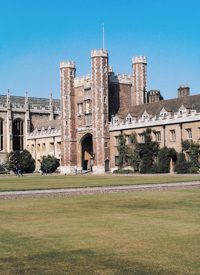
As many as 300,000 teachers could be involved, and hundreds of schools have yet to decide whether or not to participate in the strike.
According to the Telegraph, Education Secretary Michael Gove said, "The Government was doing everything possible to keep schools open on Thursday, including appealing to parents to help out." The paper added,
He warned the planned action by teaching unions would damage the reputation of the profession and was "premature" as negotiations over controversial pension reforms were taking place.
The Telegraph reported that the Education Secretary told BBC1's Andrew Marr Show: "If schools aren't open on Thursday there will be massive inconvenience for working parents, in particular single parents, who will have to rearrange childcare at very short notice."
The number of institutions ultimately involved could reach 10,000, and at this point no one is sure how widespread the effects will be. What are termed "public" schools in Great Britain are actually the private schools. It appears that for the first time in a century, a small number of these public schools could be affected by strikes as well.
The National Union of Teachers — like its U.S. counterpart, the National Education Association (NEA) — is a potent political force. The coalition government — with David Cameron’s Conservative Party in the senior role and the Liberal Party in the lesser role — would be pulled in different directions by the shutdown.
The UK's Secretary of Education, unlike the U.S. Secretary of Education, does not have to deal with robust and sovereign state governments; furthermore, there is no separation of powers, as the leaders of the UK's legislative branch are also the leaders of the executive branch.
As in America, teacher pensions are at the heart of the problem. The National Union of Teachers' complaints seem to be that government-proposed changes will leave teachers working longer, paying more, and getting less. The government maintains that the actuarial composition of the current system makes this essential.
Christine Blower, General Secretary of the National Union of Teachers, the largest and most militant of the teachers' unions, declared: "It is disgraceful that the government is pressing ahead with its reforms, which will affect teachers' pensions. The government knows that they are affordable. This is a policy which has nothing to do with economics and everything to do with politics."
Francis Maude, who has been handling negotiations for the government, deplored the shutdown decision:
We hope that no public sector workers will actually go on strike while talks continue. There is a huge amount still on the table; they will at the end still be the best available pensions, better certainly than the vast majority in the private sector.
It's very irresponsible of unions to be asking their members, many of whom are anxious about job security anyway, to lose a day's pay and to go on strike when these talks are ongoing.… We very strongly hope that anyone who works in public service will put their own interest and the interest of those they are there to serve ahead of their union leaders.
The threatened walkout on Thursday could involve as many as 750,000 strikers if other public-sector workers join in. The Daily Mail reports that as many as 70 percent of the Border Agency personnel may strike, creating massive airport chaos.



